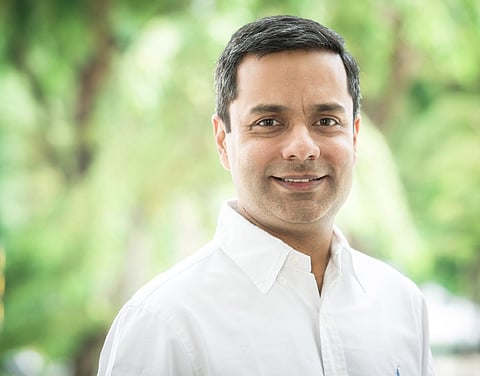
- News
- Columns
- Interviews
- Law Firms
- Apprentice Lawyer
- Legal Jobs
- हिंदी
- ಕನ್ನಡ

Nakul Dewan
On December 16, 2017, speaking at an arbitration conference in Delhi, Mr. Fali Nariman literally tore into bits India’s proposed BITs (Bilateral Investment Treaties). Expressing a strong disagreement with the suggestion set out at page 111 of the Report of the High-Level Committee to Review the Institutionalisation of Arbitration Mechanism in India, Mr. Nariman said,
“I do not agree because so-called ‘dispute prevention strategies’ are impossible to guarantee and equally impossible to achieve and accomplish.”
Mr. Nariman then went on to say that,
“[t]here needs to be a re-thinking about Bilateral Investment Treaties for India. I would definitely say, avoid them. So far, they have been a disaster.”
It is interesting to follow Mr Nariman’s reasoning for being cautious against bilateral investment treaties. Apart for some very sound reasoning which he gave at the Annual Arbitration Lecture organised by Singapore Management University in 2014, Mr. Nariman’s view is that India’s growing economy does not require her to enter into such treaties. According to him,
“…. there is no reliable evidence that foreign investment in India gets attracted only because of the standard clauses in BITs that favour investors. In my view it is attracted because of the State of the economy in India is favourably contrasted with the state of economy in other parts of the world.”
The relevance of Mr. Nariman’s views become all the more pronounced in light of the recent decision by Special CBI Court judge OP Saini in the 2G Spectrum cases, where all the accused have been exonerated of the so-called crimes alleged to have been committed in the grant of 2G licenses to telecom operators. Many of these telecom operators were joint ventures with foreign partners, who had brought into India hundreds of millions of dollars.
However, based on unproven allegations set out in writ petitions filed by public spirited individuals, the Supreme Court of India cancelled the 2G licenses by its decision in CPIL vs Union of India. The reasoning of the Supreme Court, which was dealing with a case based on submissions and not on evidence proven after a full-fledged trial, was that A Raja, the then Minister of Communication and Information Technology, failed to consider suggestions made by the Prime Minister of India and that,
“[t]he exercise undertaken by the officers of DoT between September 2007 and March 2008, under the leadership of the then Minister of Communications and Information Technology was wholly arbitrary, capricious and contrary to public interest apart from being violative of the doctrine of equality.”
The cancellation of 2G licenses by the Supreme Court led to a number of BIT claims being filed against India under investment treaties signed with Mauritius, Singapore, Germany, and Russia, running into billions of dollars and alleging expropriation of hundreds of million dollars of investments by state action.
Now, after a full-fledged trial before the Special Court which lasted seven years and resulted in a 1500 page decision, the trial judge has rendered a finding that,
“[i]t was not Sh. A. Raja, but Sh. Pulok Chatterjee, in consultation with Sh. T.K.A. Nair, as he had suppressed the most relevant and controversial part of the letter of Sh. A. Raja from the Hon’ble Prime Minister.”
What is of more concern is the fact that according to the trial judge,
“cross-examination of IO as well as the note…recorded by Sh. Pulok Chaterjee shows that he (Pulok Chaterjee) had spoken to Secretary (T) and during that he gave go ahead to DoT, but later on, entire blame was shifted to Sh. A. Raja.”
The finding, which perhaps shows governance and bureaucracy to be in a questionable state of affairs, does not criminalise the grant of licenses.
With this decision by the Special Court, the Indian government is going to have a hard timing justifying the Supreme Court cancelling the 2G licenses, especially on the ground that without a trial, the Court had come to the view that the grant of licenses was arbitrary, capricious and contrary to public interest.
The impact on the exchequer, which was not something that had weighed with the Supreme Court when it cancelled the 2G licenses, could be tremendous if the investment treaty claims succeed. An appeal against the Special Judge’s decision may not be a sufficiently credible defence in these arbitration claims, some of which are inching closer and closer to a hearing.
All of this simply goes back to Mr. Nariman’s wise words, where given the expansive scope of judicial review, India needs to be careful when it enters into new bilateral investment treaties. While India may not be able to isolate herself from world polity and refuse to sign bilateral investment treaties, it is necessary for India to harness her strengths and negotiate better.
There is nothing worse than losing a billion dollar claim through an investment treaty arbitration on investments of a few hundreds of millions of dollars. That is simply not economics.
Nakul Dewan is an Advocate at the Supreme Court of India and Barrister at 20, Essex Street Chambers, Singapore and London